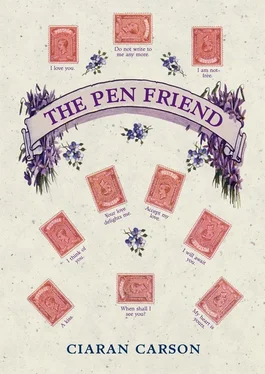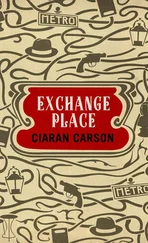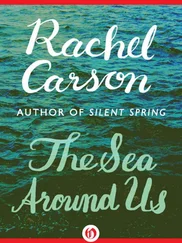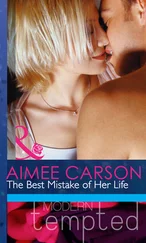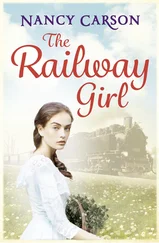You stared into the fire as you talked, and there was a soft crash as a coal collapsed. If ever you read these words I wonder if you will see them as a true account of what you said to me that night twenty-three years ago, for I know that there is no memory that is not permeated with subsequent memories. And I realise I might have interpolated your story with some details not known to me then.
For instance, Tom Harrisson had conducted an anthropological study of the cannibal tribe known as the Big Nambas, of Malekula in the New Hebrides, now known as Vanautu. In Vanautu the principal objects of wealth and of religious veneration were pigs. In this system only male pigs were valued, their tusks being especially valued; most valued of all were male hermaphroditic pigs, whose incidence in the swine population had been raised to an extraordinary fifteen per cent by generations of inbreeding. This phenomenon had previously been described in 1928 by the Oxford zoologist John Baker, in an article published in the British Journal of Experimental Zoology . Somehow, this obscure piece of research came to the attention of a group of Hollywood moguls who thought it a wonderful premise for a motion picture involving cannibals and pigs.
One day in the year 1935 Harrisson, by his own account, was wandering the shoreline of Vanautu in an emaciated and delirious condition after spending months in the highlands with the Big Nambas, when an immense yacht glided into harbour. On board was Douglas Fairbanks Sr., erstwhile star of The Mark of Zorro , who appeared to Harrisson ‘like a vision’ wearing orange-flame pyjamas. Fairbanks and Harrisson then spent the next few days drinking ‘perfect gin slings’ and discussing the logistics of the proposed motion picture. Harrisson was given firm indications that he would be hired as a consultant on the project, but it never materialised, perhaps cannibal movies had gone out of vogue, and he found himself back in England jobless.
It then occurred to him that he could easily transpose his anthropological methods to the English population, and so Mass Observation was born. The town of Bolton was not chosen by accident. It was the birthplace of Lord Lever, founder of Lever Brothers, the largest soap company in the world, producers of Sunlight, Lifebuoy, Lux and Vim, among other brands. In 1930 Lever merged with the Dutch company Margarine Unie to form Unilever, which had links with the electronics firm of Philips, where your father worked. Unilever was one of the chief sponsors of Mass Observation. I note that today Unilever are the manufacturers of Dove deodorant, which makes me think of the intertwining doves of the L’Air du Temps bottle that sits on your dressing table; which is possibly neither here nor there, though it could be argued that any one thing in the universe implies the existence of every other thing.
So I was tempted to have you tell me things you had not told me: you might have said, for example, that the poet Kathleen Raine, the partner of Charles Madge and author of such poems as ‘The Invisible Spectrum’, ‘Lenten Flowers’ and ‘The End of Love’, conducted a survey on the incidence of handkerchief use among Bolton women, from which we learn that on a particular day in 1937 a woman in a plum-coloured coat stopped outside the Regal Gown shop in Bolton and paused for two minutes and ten seconds before taking a handkerchief from her handbag and blowing her nose. You might have said that the poet and eminent literary critic William Empson was assigned to detail the contents of sweetshop windows in Bolton, and that the journalist Woodrow Wyatt was given the job of playing George Formby records on the gramophone in Harrisson’s rented house in Bolton, in order to give it an authentic Lancashire atmosphere. You might have told me that Harrisson’s first discipline had been that of ornithology, and that his experience of watching birds and then of listening to a people whose language he did not speak had convinced him that speech often hindered understanding. We cannot afford, said Harrisson — you might have said — to devote ourselves exclusively to people’s verbal reactions to questions asked them of a stranger in the street, without running a grave risk of reaching misleading conclusions. What people say is only one part — not a very important part — of the whole pattern of human thought and behaviour, said Harrisson.
There was a soft crash as an archway of coal collapsed in the fire and for a second I got the smell of coal-smoke, and then it died and your perfume came back to me as it does now. I remember wondering if Mass Observation had surveyed the fragrance departments of the big stores in Bolton, and I thought of what it must have been like to come from the Bolton smog into their brightly lit foyers. Andy Warhol loved the names of those perfumes in the Thirties fashion magazines he liked to read, and used to say them over to himself, imagining what they smelled like, I go crazy because I want to smell them all so much, he said, Guerlain’s Sous le Vent , Worth’s Imprudence , Lenthéric’s Shanghai and Gardénia de Tahiti , D’Orsay’s Belle de Jour and Trophée , Kathleen Mary Quinlan’s Rhythm , Saravel’s White Christmas . What’s that? I asked. What’s what? you said, a bit piqued, I thought, that I had interrupted the flow of your story. Your perfume, I said, and then you offered me the blue vein in your wrist. Je Reviens , you said. It works on two levels. First you get a woody base with green ferns running through it, then a heady rush of flowers. Wild narcissus, jasmine, a dash of ylang-ylang.
Let’s leave the job for now, you said.
I’ve never met a person I couldn’t call a beauty. Andy Warhol said that. I found you beautiful, Nina, and sometimes I think it’s got to do with that photograph of your mother, Nell Birtwhistle, taken at the age you were when you showed it to me, taken before you were born, for you were a late child, her only child, though not your father’s. That affair came later. And, because she looks so like you that she could be you, I used to think of you as being as old as her, were she alive — for she had died before we met — with all her experience inherited by you, her life enfolded within yours.
I always thought of you as much older than me even though you are younger. There was something in you I could never reach, something that always lay beyond my ken. Before I met you I thought that to be mutually in love would be to have a perfect understanding of the other, and she a perfect understanding of me, so that we would melt indissolubly into each other, and I hungered for that love by which I would be so understood.
But now I know it is different; and it is difference which makes that difference. For no two bodies can occupy the same space, for if they did there would not be two bodies, but one, and the other would not exist. And it is ignorance of the other which moves us to love the other, for there is always more to know in him or her, and they surprise us every day with the things they come out with, some newly minted phrase or slant on things we’d never heard or seen before, that we’d perhaps thought them to be incapable of, and so they rise forever in our estimation because each day our ignorance of them is proven, and we grow more and more attached to them because they are always one step ahead of us, like the legendary deer that will always elude the hunter. Il y a toujours l’un qui baisse et l’un qui tend la joue , according to the French proverb, and so it was with us, for you would hold your cheek for me and I’d catch your perfume as I’d kiss or try to kiss you before you would me. There is always one who kisses, and one who offers a cheek. And I wonder if it was like that between Harry Bouwer — as he became in England — and Ellie Birtwhistle. I looked at the photograph again, noting her firm stance, her broad smile that was your smile, the red and black swirl of her Dinkie pen against her white blouse, her strong hands at ease by her side. You could be twins, I said.
Читать дальше
